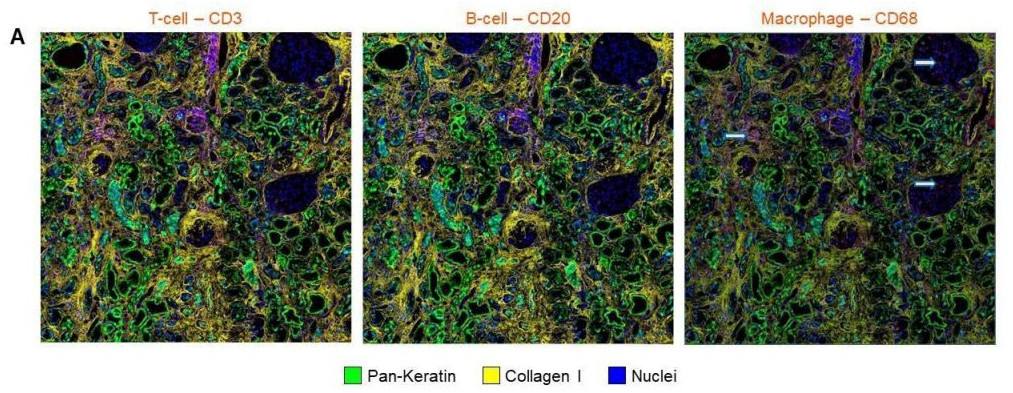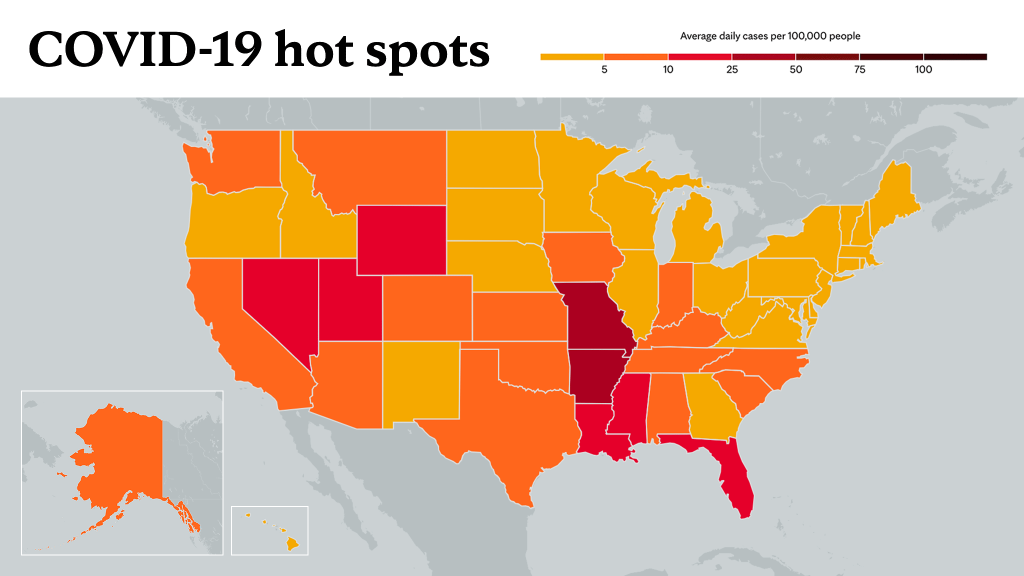
ROCHESTER, Minn. — Mayo Clinic researchers have found that acute kidney injury associated with COVID-19 resembles sepsis-caused kidney injury, and the immune response triggered by the infection plays a pivotal role.
The findings, published in Mayo Clinic Proceedings, also suggest that mitochondrial dysfunction — a loss of function in cellular energy production — is commonly found in kidney injury related to COVID-19. More than one-third of hospitalized COVID-19 patients report acute kidney injury, and sudden kidney failure is a risk factor for in-hospital mortality, according to studies published last year.
"These findings suggest that COVID-19 can induce a robust immune response in patients that contributes to the kidney injury, and kidney-supportive treatments should be initiated early for these patients," says Mariam Alexander, M.D., a renal pathologist at Mayo Clinic and the study's lead author. "Our data point to mitochondrial injury as a potential target for therapies, some of which recently have been developed and tested in preclinical models."
Severe COVID-19 disease is known to be associated with a systemic inflammatory response, as well as inflammation in the heart and lungs. Little research is available about immune response in the kidneys, and molecular studies on the renal pathology of COVID-19 patients have been limited.
"To our knowledge, this is the first in-depth study investigating the molecular and cellular changes seen in COVID-19-related kidney injury," says Dr. Alexander.
The Mayo Clinic study evaluated the kidneys of 17 adults who died from COVID-19 and had an autopsy performed at Mayo between April 2020 and October 2020. Researchers described the pathological spectrum of the kidney injury related to COVID-19 and characterized its molecular profile, compared with sepsis-associated injury.

The morphological and molecular profile of severe COVID-19 renal injury resembles sepsis renal injury, including microvascular dysfunction, inflammation and metabolic reprogramming, the study finds.
"The acute kidney injury seen in COVID-19 is likely secondary to activation of the immune system, similar to what is observed in patients with sepsis," Dr. Alexander says. "COVID-19 kidneys are inflamed and show an increased rate of cell death and notably more mitochondrial injury, compared to kidneys with injury not related to COVID-19." Mitochondria are cell structures that generate much of the chemical energy needed for proper cell function.
Of COVID-19 patients admitted to hospital ICUs, 76% have acute kidney injury. Hospitalized COVID-19 patients with secondary acute kidney injury have a nearly 50% risk of death, compared with 8% among those without kidney injury, according to data published in the Journal of the American Society of Nephrology.
The 17 patients in the Mayo Clinic study had a median age of 78 years, and 15 were male. Most had been hospitalized more than five days before death, and 53% reported hypertension as a comorbidity. Other leading comorbidities included diabetes and cardiovascular disease.
"The complex integrated imaging and molecular tests used in this study pave the way to perform similar molecular analyses in different disease conditions to study immune-mediated renal injuries in both native and transplant settings," says Timucin Taner, M.D., Ph.D., a Mayo Clinic transplant surgeon, immunologist and senior author. "We currently have several projects using this approach, with the goal being to identify the underlying mechanisms of different diseases, so we can help physicians treat these conditions more effectively."
###
About Mayo Clinic Proceedings
Mayo Clinic Proceedings is a monthly peer-reviewed journal that publishes original articles and reviews dealing with clinical and laboratory medicine, clinical research, basic science research, and clinical epidemiology. Mayo Clinic Proceedings is sponsored by Mayo Foundation for Medical Education and Research as part of its commitment to physician education. The journal has been published since 1926 and has a circulation of 127,000
About Mayo Clinic
Mayo Clinic is a nonprofit organization committed to innovation in clinical practice, education, and research, and providing compassion, expertise, and answers to everyone who needs healing. Visit the Mayo Clinic News Network for additional Mayo Clinic news. For information on COVID-19, including Mayo Clinic's Coronavirus Map tracking tool, which has 14-day forecasting on case trends nationwide, visit the Mayo Clinic COVID-19 Resource Center.
Media contact:
- Bob Nellis, Mayo Clinic Public Affairs, newsbureau@mayo.edu
_________________________________
Information in this post was accurate at the time of its posting. Due to the fluid nature of the COVID-19 pandemic, scientific understanding, along with guidelines and recommendations, may have changed since the original publication date.
For more information and all your COVID-19 coverage, go to the Mayo Clinic News Network and mayoclinic.org.
Learn more about tracking COVID-19 and COVID-19 trends.








